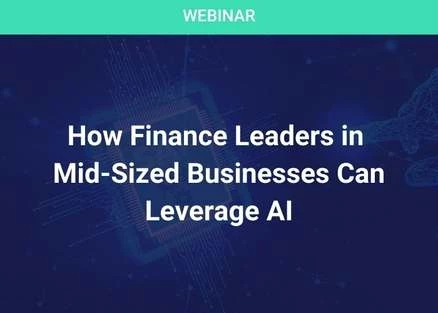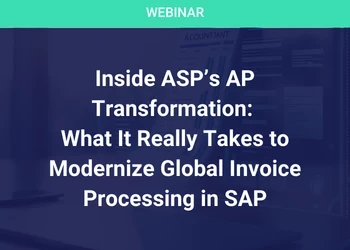What if you could instantly tap "institutional knowledge" from around the world?
Add bookmark
Over the course of my career, like most people, I changed jobs a few times. And every time I began a new job, usually on the first or second day, I was advised to speak with a wise colleague. That individual, I was told, was the keeper of “Institutional Knowledge.” Every company has one. He or she has often been with the organization for many years. He “knows the system” or “can find anything”; she “can point you in the right direction.”
I am a scientist by training, not a language expert, but the term “Institutional Knowledge” has always struck me as inaccurate. Because the institution itself is rarely the keeper of the knowledge; more often, a handful of individuals inside the institution are. And when those knowledge gurus tasked with directing me down the path to corporate enlightenment retire, or change companies, the knowledge exits with them.
"Of the many ways COVID-19 has disrupted our lives and ways of working, one of the few benefits of the crisis may be that it has made the need for accelerated innovation more urgent"
But with new digital technologies, especially A.I., application programming interface (API), and machine learning systems, all of that is about to change – and not a minute too soon! And after many years of promises and unsuccessful attempts, this time for real.
Because we can no longer afford—literally or figuratively—to rely on analog knowledge management practices in the digital era.
I work in a R&D organization which, fundamentally, is about knowledge. We must create it, add to it, store it, and share it—and not with colleagues down the hall, but across the globe. When my colleagues need access to historical data, or the latest research, there is no one “three desks over” to consult; they need instant access to up-to-the-second knowledge.
The need to better store and access knowledge is now all the more critical given the frequency with which people change jobs.
According to a 2019 report by Accenture, a U.S. worker’s median years of tenure with his or her current employer is 4.2 years; workers aged 25-34 stay less than three years. And knowledge for the “lifers” in organizations is almost as perishable: those who stay are often moved into new roles, on average every three years, thus requiring substantial retraining. Today, new hires and internal job-changers in global companies like PepsiCo are thrown almost immediately into project work, and must coordinate collaboration and knowledge-sharing across multiple time zones. Moving forward, it must be technology that apprentices them.
Inside PepsiCo R&D, we are determined to make relevant knowledge instantly accessible. We aim to capture, store and increase access to both “hard” and “soft” knowledge. Hard knowledge I define as codified or documented knowledge (product formulas, production protocols, scientific studies, and so on). Soft knowledge I define as decades’ worth of insights and learnings that “live inside my [brilliant] colleagues’ heads.”
We’ve undertaken a two-pronged strategy to capture and share such learnings.
First, we’ve created a robust, digitally-powered “Knowledge Center.” This new knowledge-sharing platform will help my 2,500+ R&D colleagues source knowledge faster and smarter to unleash product innovation and advance our sustainability goals. This is far beyond the static “SharePoint” folders of the past. It’s more akin to an internet search engine. An R&D colleague might, for example, have a question about plant-based proteins. The technology will search through our research on the subject, and be able to identify both documents and subject experts on the topic. In just a few moments, my colleagues will be directed to high-quality, curated research documents or expert colleagues three time zones away.
Second, we are becoming more effective at “data-mining” our colleagues. Applying A.I. technologies developed by Starmind, we’re conducting iterative question and answer sessions with R&D subject experts across the globe to capture, sort and codify their project work and lessons learned.
Perhaps the biggest distinction between the analog model and today’s digital model is the art of data curation. In the past, most organizations migrated every document created into a big, unwieldy system. It was common to see ten versions of the same document, from drafts (potentially riddled with factual errors) to the final version. Inside PepsiCo R&D, we’ve taken a different approach. We narrow topics and we make sure the data is unassailable before uploading it. Clear guardrails have been established to determine what’s included and, perhaps more importantly, what’s not included, which has required upskilling our team members worldwide to govern content decisions and synthesize data.
The analog model prized quantity; today’s digital model insists on quality.
Of the many ways COVID-19 has disrupted our lives and ways of working, one of the few benefits of the crisis may be that it has made the need for accelerated innovation more urgent. Travel may be suspended, but global teams are still accountable for delivering timely results. And even when the coronavirus is behind us, there will likely be less traveling. My R&D colleagues will, increasingly, be knowledge-sharing and networking in place—whether they’re based in Moscow, South Africa, Shanghai, São Paulo, Dubai, Turkey, Mexico, or Dallas.
Now more than ever, knowledge needs to be instantly and virtually accessible to help us solve problems and drive faster innovation.
























